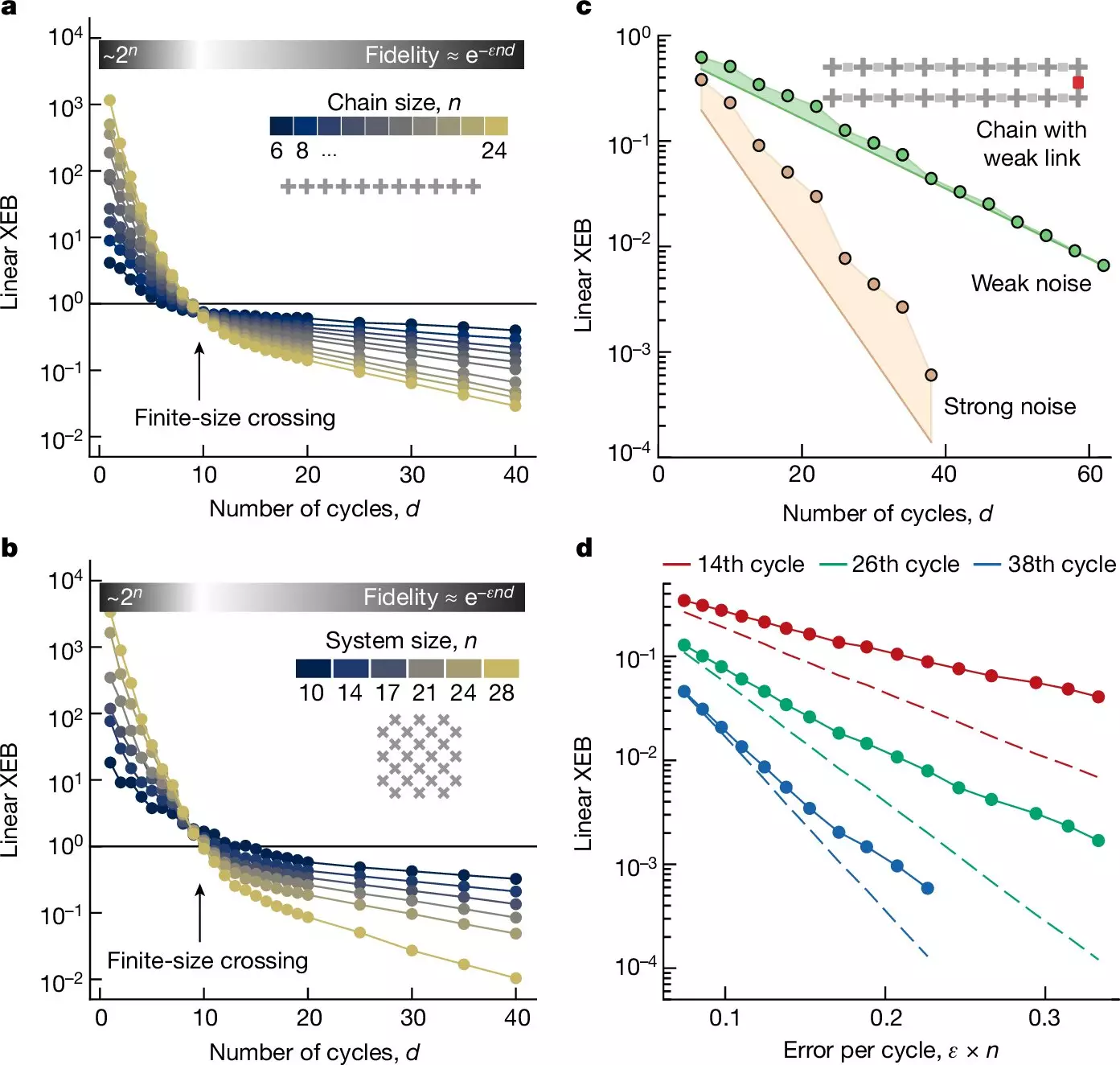In recent years, the race to develop truly revolutionary quantum computers has captivated researchers and tech enthusiasts alike. A notable advancement in this field has come from a dedicated team at Google Research, where engineers and quantum specialists have achieved a significant milestone by enhancing the performance of their Sycamore quantum chip. Their recent findings, published in the esteemed journal Nature, articulate a compelling narrative about how noise reduction can empower quantum processors to outperform classical computers in specific tasks like random circuit sampling (RCS).
The aspiration behind quantum computing has long been to harness the power of quantum mechanics to perform calculations unfathomable to traditional supercomputers. Historically, computer scientists have grappled with a myriad of challenges that have hindered their ability to deliver on the promises of this cutting-edge technology. Theoretical models had painted an optimistic picture, but practical applications remained elusive, largely due to the noise issues associated with quantum systems.
The Impact of Environmental Noise
One major obstacle in the development of reliable quantum computers is the interference caused by environmental noise. Various sources of noise—ranging from fluctuating temperatures and magnetic fields to cosmic radiation—can disrupt quantum operations, leading to errors that compromise computation. To mitigate these challenges, researchers have been exploring methods of error correction as well as innovative designs to prevent noise from affecting sensitive systems.
Google’s research signifies a promising direction in this domain. By strategically placing their Sycamore chip in a near absolute zero chamber, the team aimed to minimize the environmental interference. This creative approach illustrates the importance of environmental conditions in quantum computing research and underscores the potential gains derived from small adjustments. By achieving a higher error-free rate—jumping from 99.4% to 99.7%—the researchers unlocked enhanced capabilities that led to their quantum chip achieving a notable “quantum advantage” over classical computers.
Strategies and Future Prospects
This pivotal study not only demonstrates the significance of reducing noise but also presents a practical framework for quantum computing effectiveness. By utilizing algorithms such as RCS—which focuses on generating random sequences—researchers can benchmark the performance of quantum systems against classical counterparts. The implication of such advancements is profound: as noise levels decrease and error rates improve, we inch closer to a future where quantum machines can tackle complex algorithms—tasks that would consume millennia on traditional systems.
The progress made by Google researchers shines a light on the ongoing journey toward useful quantum machines. While the aspiration to create a fully functional quantum computer continues, these advancements indicate we are moving closer to actual applications that can reflect the true capabilities of quantum technology. With noise reduction becoming a crucial element in this quest, the potential applications of these quantum systems—ranging from cryptography to optimization problems—stand to alter industries and pave the way for innovations yet to be envisioned.
Google’s recent breakthroughs exemplify not just the potential of quantum computing, but also the ingenuity required to grapple with its inherent challenges. As research continues to evolve, the quest for a truly operational quantum computer remains an exciting and dynamic frontier in science and technology.

